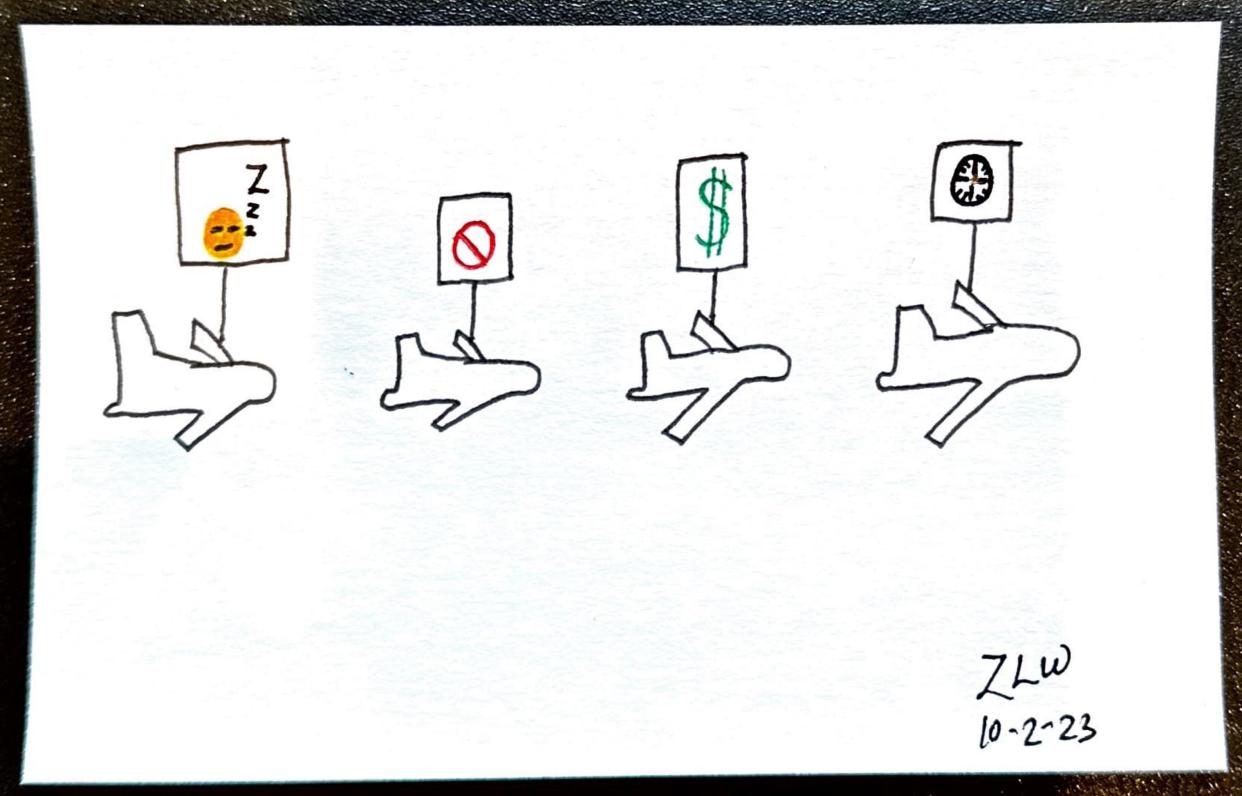No justice, no pea(nuts): How airline labor deals impact you | Cruising Altitude
If you feel like you’ve heard about a lot of potential airline strikes recently, you’re not going crazy; it’s really happening.
Pilots, flight attendants, ground crews and other unionized airline workers are all negotiating, more or less simultaneously, at many carriers for new working agreements. Part of the timing is because negotiations at many companies were put on pause earlier in the pandemic and have since resumed.
I’ve written before about how strike authorizations are not a reason for travelers to panic. Airline managers and unionized employees generally work hard in good faith to avoid shutting operations down. However, labor leaders across the industry said those votes are far from meaningless.
“When employees say ‘I am willing to strike,’ you’ve got a problem because the day-to-day functioning of the airline now has this cloud hanging over it because you’re not happy,” Capt. Dennis Tajer, spokesperson for the Allied Pilots Association, which represents American Airlines pilots, told me. “It puts uncertainty where it shouldn’t be and where it can be removed. It doesn’t have to be the airline business. When you go into a restaurant when the food is just what you want but everyone is very unhappy, you have a tendency to not have a pleasant experience.”
So, will a strike affect your next flight? Probably not, but that doesn’t mean the threat is worth ignoring. Here’s what to know about this moment in aviation labor.

What are airline workers bargaining for?
In general, airline employees are asking for more favorable work rules and higher pay.
“Much like the auto workers are saying, ‘these executives got a 40% increase, we’re not asking for anything different,’ the same thing is happening at the airlines,” Sara Nelson, president of the Association of Flight Attendants, told me. AFA represents flight attendants at many airlines, including United Airlines and Spirit Airlines.
Capt. Jason Ambrosi, president of the Air Line Pilots Association, which represents pilots at carriers including Delta Air Lines and Alaska Airlines, added that negotiators at different carriers are working to ensure pay rates for aviators on the same aircraft remain similar across the industry.
“ALPA pilot groups have negotiated collective agreements that have significantly raised the bar for the entire aviation industry,” he said in an email. “There is a fundamental recognition, post-COVID, that airlines can’t meet their growth targets without the pilots on board.
How can strikes happen at airlines?
As I’ve written about, even when airline workers vote to authorize a strike, that doesn’t automatically mean it will happen. Airlines and their contract negotiations are regulated by the Railway Labor Act, which has requirements for mediation, cooling-off periods and other steps before a strike can legally occur.
The result is that airline workers rarely strike, even when they signal they’re ready to do so.
“A strike authorization ballot shows overwhelming pilot unity and provides the pilots negotiating committee with the leverage it needs in negotiations,” Ambrosi, from the pilots association, said. “Passengers should know that union pilots are absolutely willing to go the distance and strike if necessary.”
Cruising Altitude: The fastest way to board planes is the option you'll hate
What does all this mean for travelers?
While other airline workers continue to negotiate with their companies, you may see an increase in union-related activities, like informational picketing at airports.
It may seem disruptive, but Nelson from the Association of Flight Attendants said it’s meant to raise awareness and not actually disrupt your trip. Ultimately, she said, her union members are prepared to strike if management doesn’t present a fair offer in negotiations.
“Sure, the threat of a strike could threaten travel plans, but we’re negotiating for things that could be helpful to running a smoother operation,” Nelson said. “Even if there’s a short-term threat for a strike in the airline industry, which could come around the time of the holidays. On the other side of this, passengers are going to be the beneficiaries of those contracts in most cases.”
Nelson, Tajer and Ambrosi all agreed that fairly compensated workers make the aviation industry safer, and when airline employees are more contented, the flying experience is typically better for travelers.
So my usual advice applies: don’t panic if you hear about a strike authorization at your preferred airline, but know that those workers mean business.
What are some of the contracts that have already passed?
Pilots at United Airlines were the most recent to ratify a new contract, which went into effect on Sept. 29. That agreement included raises of up to 40% over four years, as well as improvement to sick leave and vacation time.
Tajer, from the Allied Pilots Association, said that United’s agreement triggered provisions in contracts at American and Delta that meant those carriers would boost pay to match their competitor’s more generous terms.
Zach Wichter is a travel reporter for USA TODAY based in New York. You can reach him at zwichter@usatoday.com
This article originally appeared on USA TODAY: What you need to know about airline strike threats | Cruising Altitude
